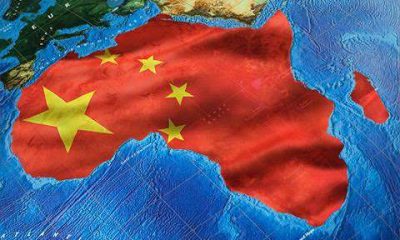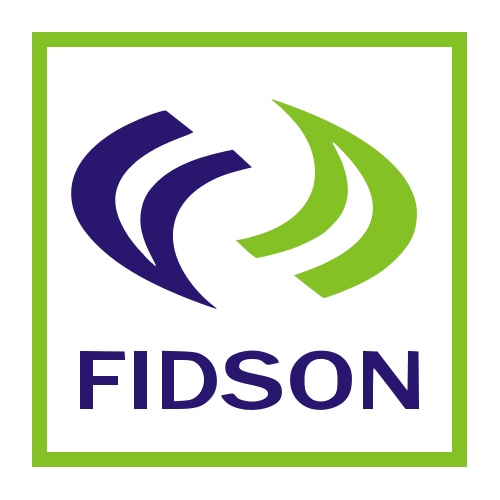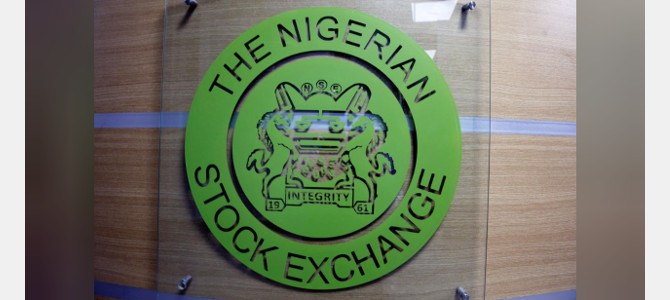Business
Pharmaceutical firms fall into deeper crisis over worsening economy

Pharmaceutical companies operating in Nigeria are facing severe challenges due to worsening economic headwinds and policy issues, Business Hallmark can report.
Many drug makers, findings revealed, are struggling to cope with high operational costs, restricted access to credit, and rising inventories caused largely by high costs of drugs and healthcare products.
Prices of drugs and healthcare products have spiked across the country in recent months, hitting four decades high in October 2024.
As a result, many Nigerians in need of life-saving drugs and healthcare products, who can no longer afford manufactured drugs because of diminished purchasing power have resorted to cheaper alternatives, especially herbal remedies and faith healing products like anointing oil.
Though, the battered sector had over the years managed to survive myriads of challenges, the removal of fuel subsidies and currency devaluation by the administration of incumbent President Bola Tinubu, had further worsened the already bad situation, leading to revenue losses, downsizing, and in some cases, closures.
According to available data, no fewer than two global brands operating in the country have exited in the last year. They included GlaxoSmithKline (GSK) and Sanofi-Aventi.
While GSK, a British healthcare and multinational biotech firm, discontinued operations in Nigeria in August 2023, after 51-year of doing business in the country, while French drug manufacturing giant, Sanofi, exited Nigeria in November 2023.
GSK, while announcing the discontinuation of the commercialisation of its top medicines and vaccines in the country via GSK local operating companies, said it it will move to a third-party direct distribution model.
In the same vein, Sanofi-Aventi Nigeria, said it was adopting a third-party model to distribute its products in Nigeria starting from 2024.
The French company explained that its new model will enable the commercialisation of Sanofi’s portfolio of medicines by a third-party distributor.
Performance profile
Meanwhile, local pharmaceutical firms still in operations and their foreign partners that stayed behind have not fared better, as they are also passing through a difficult period.
According to the most recent financial statements of three quoted drugs manufacturing firms obtained by BH, the prolonged economic turmoil is squeezing out their businesses, forcing them to take drastic actions to stay afloat.
The drug makers, Fisdon Healthcare Plc, Neimeth International Pharmaceuticals Plc and May & Baker Nigeria Plc, are grappling with surging finance costs, rising operating expenses, and a decline in profit despite rising revenue.
An indepth analysis of Fidson Healthcare financial results for the year ending December 31, 2023 adopted by its shareholders at its Annual General Meeting (AGM) held in July 2024 indicates that despite the report indicating a robust performance, the company still struggled in the year under review.
For instance, Fidson Healthcare reported a turnover of N53.050 billion in 2023, up from N40.634 billion in 2022, representing a 31 per cent increase.
Also, the firm’s operating profit grew by 6.78 per cent from N7.489 billion in 2022 to N7.996 billion in 2023, while profit before tax rose by 2 percent, from N5.781 billion in 2022 to N5.917 billion in 2023.
As a result, a dividend of 60 kobo per 50 kobo ordinary share, marking a 9.1per cent increase from 2022, was awarded to shareholders.
However, a deeper analysis of the report showed that profit after tax saw a decline of 13.85 per cent, dropping from N4.187 billion in 2022 to N3.607 billion in 2023.
Speaking on the drop in profits, Chairman of Fidson Healthcare, Olusegun Adebanji, blamed it on increased costs, particularly in energy, importation, and administrative expenses.
“The Board and Management have put measures in place to ensure operational efficiency and enhance the strength and affordability of our brands to minimize the adverse effects of the challenging economic environment on our operating results”, Adebanji stated.
BH checks show that the trend continued in 2024, with Fidson recording a revenue increase of 29.6% in Q2 2024, compared to the same period in 2023, rising from N14.1 billion to N18.3 billion.
However, the company’s pre-tax profit fell by 66% year-over-year, largely due to escalating expenses linked to foreign exchange costs and naira’s devaluation.
The pattern in May & Baker’s financial results of is not too different from that of Fidson Healthcare.
According to the manufacturing giant’s Q1’2024 report, its after-tax profit rose to N655.4 million from N284.4 million in the same period of last year, while its revenue rose to N6.4 billion from N4.2 billion.
However, the cost of business rose to N4.1 billion from N3.1 billion; distribution, sales, and marketing expenses surged to N820.3 million from N436.4 million, while administrative expenses ballooned by 66 percent to N456.3 million from N292.7 million driven by the cost of inventories.
According to the report, May & Baker recorded a 47.8 percent increase in inventories to N9.6 billion in the first three months of 2024 up from N6.3 billion recorded in Q1’2023.
While the two foreign multinational firms, Fidson and May & Baker, have relatively fared better, the same cannot be said of their Nigerian counterpart, Neimeth International Pharmaceuticals Plc.
Without having the same institutional and financial support structures at the beck of its foreign competitors, Neimeth has struggled to confront headlong myriads of challenges that have besieged the manufacturing industry.
According to available data, the wholly indigenous firm had recorded back to back financial losses despite prices of drugs climbing astronomically in the last three years. In the financial year (FY) 2023, Neimeth recorded N2.2billion turnover. However, the feat was cancelled out by a net loss of N2.8billion in the same period under review.
Expected, the company’s leadership is projecting a modest N211million profits for the 2024 financial year (FY).
An analysis of the 2023 financial statements of five pharmaceutical firms, namely May & Baker Plc, GlaxoSmithKline (GSK), Fidson Healthcare Plc, Neimeth International Pharmaceuticals Plc and Morison Industries Plc, showed a decline in their financial performance on the back of a lingering foreign exchange crisis, goods inventories and rising inflation.
The trio of GSK Consumer Nigeria (exited), May & Baker and Fidson Healthcare reported a combined after-tax profit of N4.81 billion in 2023, down from N6.47 billion in the previous year.
In the same vein, Neimeth reported an after-tax loss of N2.58 billion compared to a profit of N19.1 million, while Morison Industries posted a loss of N89.4 million, down from N107.5 million.
Speaking on the development, President of Lagos Chamber of Commerce and Industry (LCCI), Gabriel Idahosa, said the pharmaceutical industry is part of the manufacturing sector and that the sector is also affected by the challenges facing other manufacturers in the country.
“The pharmaceutical industry is in a very difficult situation now. Everything in the industry is imported from raw materials to the packaging.
“Whatever will improve the manufacturing sector will also improve the pharmaceutical one”, the LCCI boss stated.
Also speaking, the immediate past president of the Pharmaceutical Society of Nigeria (PSN), Sam Ohuabunwa, said the devaluation of the naira led to a depression in the demand for drugs.
“And with high inflation and devaluation, it becomes difficult for businesses in the pharmaceutical industry to recover the price and when they try to recover it, their products become unaffordable”, he lamented.








